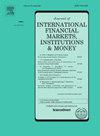Bank relationships and corporate exchange rate risk
IF 6.1
2区 经济学
Q1 BUSINESS, FINANCE
Journal of International Financial Markets Institutions & Money
Pub Date : 2025-10-02
DOI:10.1016/j.intfin.2025.102228
引用次数: 0
Abstract
This study examines how bank relationships are related to corporate exchange rate risk, with a particular focus on equity relationships. The results show that bank relationships are negatively associated with corporate exchange rate risk, and that bankers on corporate boards have a stronger risk-reducing effect than bank equity ownership. Mechanism analysis reveals that corporate governance significantly moderates this relationship: the risk-reducing effect is amplified when agency problems are severe and weakened when internal controls are strong. Heterogeneity analysis indicates that non-state-owned firms and those in less developed regions rely more heavily on bank relationships to manage exchange rate risk. This study implies that bank relationships play a key governance role in managing exchange rate risk, offering firms practical guidance for enhancing their practices.
银行关系和企业汇率风险
本研究探讨银行关系如何与企业汇率风险相关,特别关注股权关系。结果表明,银行关系与公司汇率风险呈负相关,并且公司董事会银行家比银行股权具有更强的风险降低效果。机制分析表明,公司治理显著调节了这一关系:代理问题严重时风险降低效应放大,内部控制强时风险降低效应减弱。异质性分析表明,非国有企业和欠发达地区的企业更依赖银行关系来管理汇率风险。本研究表明,银行关系在管理汇率风险方面发挥着关键的治理作用,为企业加强其实践提供了实践指导。
本文章由计算机程序翻译,如有差异,请以英文原文为准。
求助全文
约1分钟内获得全文
求助全文
来源期刊
CiteScore
6.60
自引率
10.00%
发文量
142
期刊介绍:
International trade, financing and investments, and the related cash and credit transactions, have grown at an extremely rapid pace in recent years. The international monetary system has continued to evolve to accommodate the need for foreign-currency denominated transactions and in the process has provided opportunities for its ongoing observation and study. The purpose of the Journal of International Financial Markets, Institutions & Money is to publish rigorous, original articles dealing with the international aspects of financial markets, institutions and money. Theoretical/conceptual and empirical papers providing meaningful insights into the subject areas will be considered. The following topic areas, although not exhaustive, are representative of the coverage in this Journal. • International financial markets • International securities markets • Foreign exchange markets • Eurocurrency markets • International syndications • Term structures of Eurocurrency rates • Determination of exchange rates • Information, speculation and parity • Forward rates and swaps • International payment mechanisms • International commercial banking; • International investment banking • Central bank intervention • International monetary systems • Balance of payments.

 求助内容:
求助内容: 应助结果提醒方式:
应助结果提醒方式:


